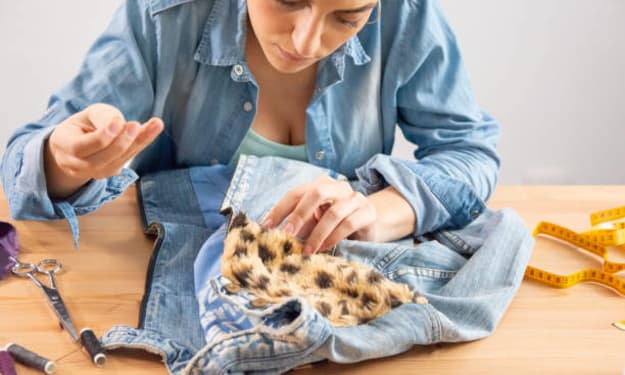Sustainable doesn't mean boring
How Ethical Fashion is Evolving to meet fashion forward demands

In a world where fast fashion dominates the fashion industry, there has been a growing demand for a more ethical and sustainable approach to clothing production. Consumers are now more aware of the environmental and social impact of mass-produced clothing, and they are demanding a change.
Ethical fashion has been gradually gaining momentum over the past few years, and now it is becoming a trend that even the most fashion-forward individuals are embracing. In response to these changing demands, the fashion industry is evolving and adapting to create sustainable, ethical clothing that still meets the demands of those who crave the latest fashion trends.
One of the most significant changes in ethical fashion is the use of sustainable materials. Many brands are now creating clothing from organic cotton or recycled materials. This not only reduces waste, but it also helps to conserve water and minimize the environmental impact of clothing production.
Another change that we have seen is an increasing emphasis on transparency. Many ethical fashion companies are now more open about their production process, including where their materials are sourced and who makes their clothes. This allows consumers to make more informed choices when it comes to purchasing clothing.
Brands are also taking steps to protect the workers who produce their clothing. Many ethical fashion companies now prioritize fair labor practices, ensuring that workers are paid a fair wage and work in safe conditions. This has been a welcome change in an industry that has often been criticized for exploiting workers in developing countries.
As ethical fashion continues to evolve, we can expect to see even more changes. Fashion-forward consumers are demanding more innovative approaches to sustainable clothing production. This includes upcycling and repurposing materials to create unique and stylish clothing. It also involves designing clothing that is durable and long-lasting, rather than disposable.
Overall, the fashion industry is quickly realizing that they need to evolve to meet the demands of ethical consumers. While there is still a long way to go, the shift towards more sustainable and ethical fashion is a step in the right direction. With the support of consumers, we can push the industry to continue to evolve in a more ethical and sustainable direction.
Here are a few reasons why ethical fashion is important:
1. Promote Fair Labor Practices: Ethical fashion upholds the rights of garment workers and ensures that they work in safe, humane, and fair conditions. Garment workers should be paid a fair wage and work in safe and healthy working conditions.
2. Environmental Impact: The fashion industry is one of the leading polluters, contributing to climate change, water scarcity, and depletion of natural resources. Ethical fashion strives to reduce the environmental impact of the entire fashion supply chain by using sustainable materials, reducing waste, and implementing environmentally friendly practices.
3. Consumer Awareness: Ethical fashion educates consumers about the impact of their fashion choices on the environment and society. Consumers can make informed choices when purchasing clothes and accessories that align with their personal values and support socially responsible brands.
4. Support Local Economies: Ethical fashion supports local economies by working with small-scale producers, artisans, and craftspersons. It helps to promote traditional techniques, skills, and cultural heritage that might be under threat from fast fashion’s mass-produced clothing.
5. Promote Social Responsibility: Ethical fashion promotes social responsibility and accountability throughout the entire supply chain. Brands are required to be transparent about their practices, ensuring that they are held accountable to their commitments to ethical and sustainable practices.
There has been an increasing awareness and interest among people towards ethical fashion. Consumers are becoming more conscious of the impact of their fashion choices on the environment and society, and are looking for alternatives that support ethical and sustainable practices. There are various initiatives and campaigns that promote ethical fashion and encourage consumers to make responsible choices.
Moreover, consumers are also demanding that fashion brands become more transparent and accountable regarding their practices, including labor practices, supply chain management, and the use of sustainable materials. Brands that have committed to ethical and sustainable practices are also gaining popularity among consumers as they align with their personal values and beliefs.
Overall, the response to ethical fashion has been positive, with more and more people choosing to support socially responsible brands that prioritize ethical and sustainable practices.





Comments
There are no comments for this story
Be the first to respond and start the conversation.